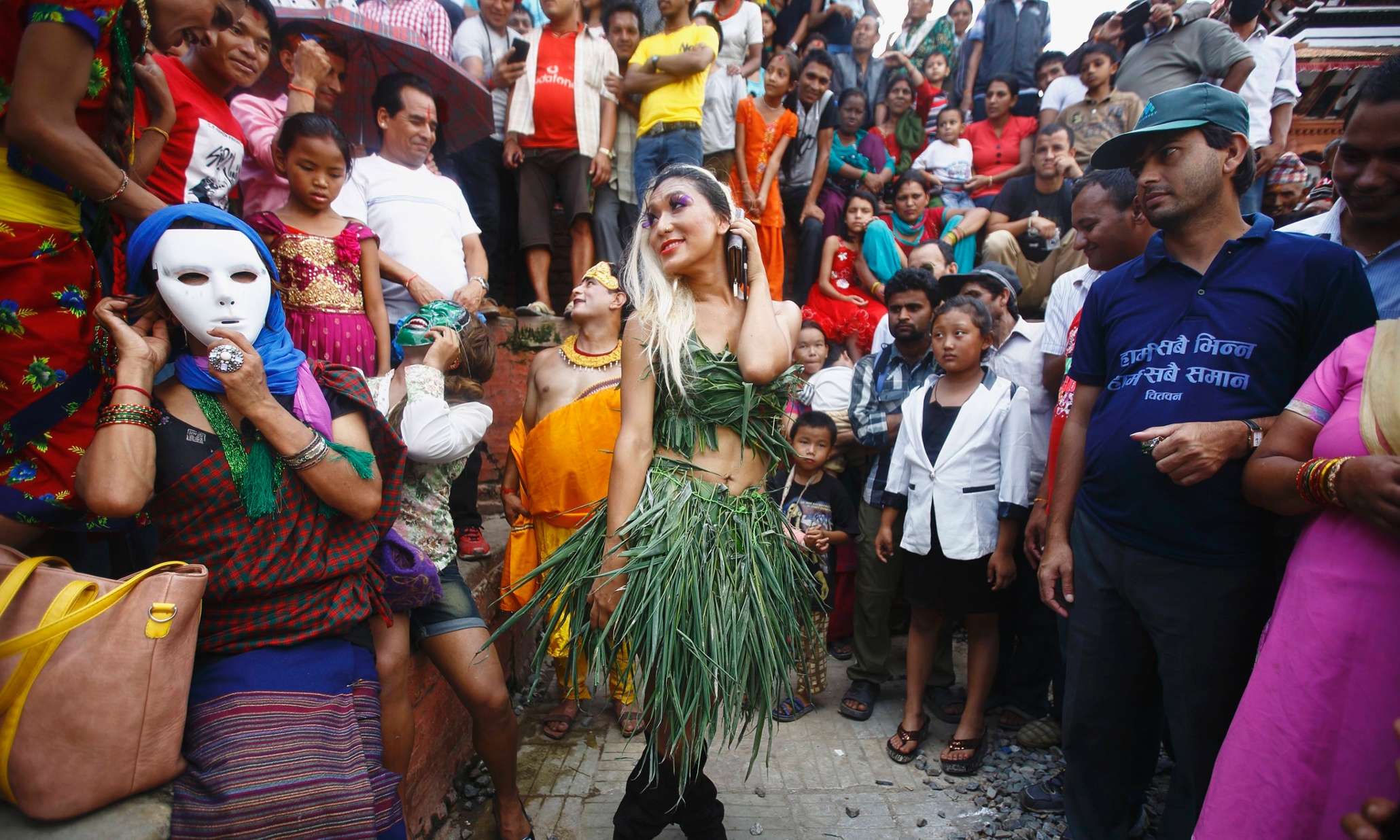
Nepal’s New Non-Discrimination LGBT Laws Leave Even India & The West Behind
22 Sep 2015 3:02 PM GMT
Editor : Richa Verma Verma
I have done my graduation and post graduation in English Literature from Miranda House, Delhi University. Writing is my passion and I believe words have immense power which can shape the thoughts of an individual as well as the nation.
Image Source: theguardian
For the past six decades the Himalayan nation of Nepal has been in the grip of political turmoil, trying to break away from monarchy and establish a truly democratic state. On 24th December, 2007 the Nepalese Constituent Assembly came into being after it was announced that the 293-years-old monarchy would be abolished in 2008 after the Constituent Assembly elections. On May 28th, 2008, Nepal was declared a Federal Democratic Republic. It took Nepal another 7 years to finally ratify the new constitution. It was done on 16th September, 2015.
While striving for democracy in a country is in itself a momentous journey, what adds icing to the cake is that Nepal has become the first nation in Asia to constitutionally grant equal rights and protection against discrimination to its LGBT (Lesbian Gay Bisexual Transgender ) community. It is now in league with a handful of countries in the world which have given such established protection to its LGBT citizens, including South Africa ((1996) and Ecuador (1998). This was reported by the HRC (Human Rights Campaign) as a groundbreaking achievement for any country in Asia.
What the Nepalese Constitution States:
Article 12– citizens will be allowed to choose their preferred gender identity on their citizenship document. The choices available are male, female or other.
Article 18 states that gender and sexual minorities will not be discriminated against by the state and by the judiciary in the application of laws. It further adds that the government may make special provisions through laws to protect, empower and advance the rights of gender and sexual minorities and other marginalized and minority groups.
Article 42 lists gender and sexual minorities among the groups that have a right to participate in state mechanisms and public services to promote inclusion.
Implication
Earlier this year, Nepal had already acknowledged its transgender community by allowing a third category of “others” on passports, apart from the then existing categories of “male” and “female”. After the havoc wrecked in Nepal post-quake, there were separate camps for LGBT members so that they would not feel uncomfortable. The latest inclusion in the constitution is in line with these small steps already taken in the Himalayan nation.
According to Sunil Babu Pant, founder of Blue Diamond Society and Asia’s first openly gay federal member of a Parliament, “This new Constitution makes clear that we can be proud of our LGBT identities, and that we can be proud citizens of Nepal … This victory is just the beginning of our long road towards full equality. We are ready to move beyond the discrimination, violence and exclusion of the past, and continue with even greater integrity, responsibility and dedication to contribute to the nation-building process. We will be working together with Nepali and international allies to build our nation, a ‘new, inclusive and prosperous Nepal’.” Ty Cobb, Director of HRC Global has congratulated LGBT Nepalis and their allies for “this historic victory, hope to see other nations across Asia and the globe take similar steps to ensure full legal equality for their LGBT citizens.”
Though there is no direct mention of same-sex marriage in the new constitution, all issues related to marriage are slated to be handled through the civil code to be revised in the future. This is just going to galvanize their propaganda for future legalization of same-sex marriage as happened in South Africa.
International Status of LGBT Rights:
On July 2015, seventy two countries as well as five sub-national jurisdictions had laws criminalizing homosexuality; most of them are located in Asia and Africa. In 19 countries there is marriage equality and in two countries same-sex marriage is legal in certain jurisdictions. However, 75 countries criminalize same-sex relationships, in 10 countries it is a crime punishable by death and we have hundreds of cases of transgender individuals who are murdered every year.
India
Indian Penal Code 377 was introduced during the British rule in India. In 1860, IPC 377 read thus:
Unnatural offences: Whoever voluntarily has carnal intercourse against the order of nature with any man, woman or animal shall be punished with imprisonment for life, or with imprisonment of either description for term which may extend to ten years, and shall also be liable to fine.
This meant that a large though minor community which had been a part of Indian culture from time immemorial was declared criminals with a stroke of pen.
The colonial legacy is very much present in our country. There was a ray of hope when the Delhi High Court read down section 377 of Indian Penal Code (thus decriminalizing homosexuality). Those hopes remained short-lived because in 2013 our Supreme Court dismissed the High Court’s ruling.
Being the world’s largest democracy, we should ideally be the torchbearer championing the rights of this minority community, yet we languish far behind. We sincerely hope that we learn from Nepal and forge equal constitutional and legal status to this community which faces physical and emotional trauma, abuse, rapes, police custody and murders on a daily basis throughout their lives.
 All section
All section













